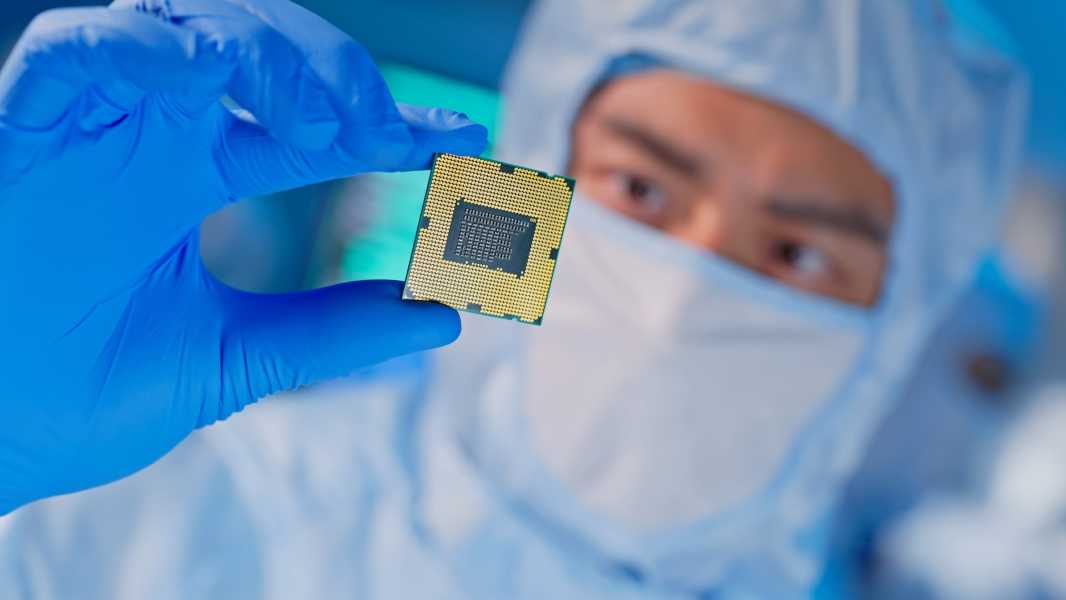
(Image credit: aslysun via Shutterstock)
On April 1, 2025, Taiwan's TSMC unveiled the world's most advanced microchip: a 2-nanometer (2 nm) chip. With mass production planned for the second half of the year, TSMC says it will be a significant step up in efficiency and performance — potentially changing the technology landscape.
Microchips are the foundation of modern technology, found in virtually every electronic device from electric toothbrushes and smartphones to laptops and home appliances. They are made by layering and etching materials like silicon to create microscopic circuits with billions of transistors.
These transistors are tiny switches that regulate the flow of electricity and make computers work. In general, the more transistors a chip has, the faster and more powerful it is.
The microchip industry is constantly striving to fit more transistors into a smaller area, resulting in faster, more powerful, and more energy-efficient technological devices.
Compared to the previous cutting-edge chip, known as 3nm chips, TSMC's 2nm technology should provide noticeable advantages. This includes a 10%-15% increase in computing speed at the same power level, or a 20%-30% reduction in power consumption at the same speed.
What's more, the transistor density in 2nm chips has increased by about 15% compared to 3nm technology. This should allow devices to run faster, consume less power, and handle more complex tasks efficiently.
Taiwan's microchip industry is vital to its security. It is sometimes called the “silicon shield” because its importance to the economy prompts the United States and its allies to protect Taiwan from a possible Chinese invasion.
TSMC recently struck a $100bn (£76bn) deal to build five new factories in the US. However, there is uncertainty over whether 2nm chips will be made outside Taiwan, with some officials raising concerns that it could threaten the island's security.
Founded in 1987, TSMC, which stands for Taiwan Semiconductor Manufacturing Company, makes chips for other companies. Taiwan accounts for 60% of the world's foundry (outsourced semiconductor manufacturing) market, and TSMC accounts for the vast majority of that.
TSMC’s advanced chips are used by other companies in a wide range of devices. The company makes Apple’s A-series processors, used in iPhones, iPads, and Macs, as well as NVidia’s graphics processors, used for machine learning and artificial intelligence applications. TSMC also makes AMD’s Ryzen and EPYC processors, used in supercomputers around the world, and Qualcomm’s Snapdragon processors, used in phones from Samsung, Xiaomi, OnePlus, and Google.
In 2020, TSMC began a special microchip miniaturization process known as 5nm FinFET technology, which has played a major role in the development of smartphones and high-performance computing (HPC). HPC is the practice of having multiple processors work simultaneously on complex computing tasks.
Two years later, TSMC launched a 3nm miniaturization process based on even smaller chips. This further increased performance and energy efficiency. For example, Apple's A-series processor is built on this technology.
Smartphones, laptops and tablets with 2nm chips could benefit from better performance and longer battery life, leading to smaller, lighter devices without sacrificing power.
The efficiency and speed of 2nm chips can improve AI-based applications such as voice assistants, real-time translation, and autonomous computing systems (designed to operate with little or no human intervention). Data centers can use less energy and provide improved processing capabilities, helping to achieve environmental sustainability.
Sectors such as autonomous vehicles and robotics can benefit from the increased processing speed and reliability of new technologies.
Sourse: www.livescience.com





